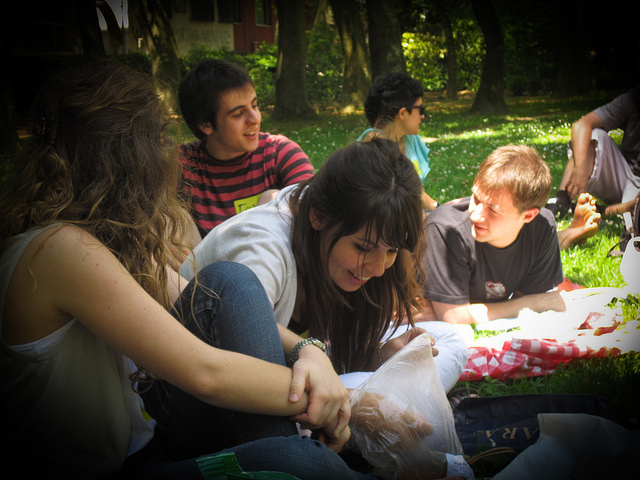Why Latinos don’t talk about HIV, and why we should

By Victor Landa, NewsTaco
The thing about HIV in the Latino community is that we don’t talk about it as much as we should. And the thing about talking about HIV isn’t that we don’t want to, it’s that we’d rather not.

That subtle difference makes it harder because it allows for understanding. “We know it’s important, but we’d rather not talk about those things.”
Here’s an icebreaker: “You know that [tweet_dis]1 in 5 people living with HIV in the United States is Latino[/tweet_dis]?” It’s actually 21 percent, but we’re rounding off for the sake of conversation. In real numbers, [tweet_dis]there are 250,000 Latinos in the U.S. living with HIV.[/tweet_dis]
Here’s another: “You know that [tweet_dis]1 in 4 people diagnosed with HIV in the United States is Latino[/tweet_dis]?” It’s actually 23 percent, but, you know.
I’ll let that sink-in for a bit.
People know how devastating a HIV diagnosis can be, they understand the seriousness and the need for prevention, it’s just not a topic of “polite” conversation. And that’s what the folks at the Center for Disease Control want to change. They’ve started a campaign called “We Can Stop HIV One Conversation at a Time / Podemos Detener el VIH Una Conversación a la Vez.” The idea, according to the CDC, is to “recognize and reflect the reality that it is not always easy to talk about HIV and that barriers to open dialogue are real and challenging. To help Hispanics/Latinos start these critical conversations.”
[pullquote]The people at the CDC and AltaMed Healthcare services produced a telenovela series that “takes viewers into the lives of a dynamic Mexican-American family coping with issues around HIV and sexual health.”[/pullquote]People who sell you anything from cars to soda to insurance use the known tactics to access the Latino community: we’re a tight-knit bunch, and we talk to each other a lot – we influence one another, through our families and our friends. So why not use those channels to open important conversations about HIV risk, prevention and testing?
It makes a difference. It’s another thing you can talk about with your family and friends. “[tweet_dis]Research has shown that talking about HIV and AIDS is associated with more knowledge about HIV prevention[/tweet_dis], more condom use, and increased HIV testing, all of which are associated with fewer new HIV infections.” The truth is that talking about HIV saves lives.
It’s sounds dramatic, I know – like a telenovela. The people at the CDC and AltaMed Healthcare services think so too, so they produced a telenovela series that “takes viewers into the lives of a dynamic Mexican-American family coping with issues around HIV and sexual health.” The idea is to get Latinos to watch the series, then talk about it.
It’s called Sin Vergüenza, and you can watch the first episode HERE. Once you and your family and friends get hooked, you can watch the entire series HERE.
[tweet_dis]This Thursday, October 15, is National Latino HIV Awareness Day[/tweet_dis] and the hope is to ignite a nation-wide conversation about HIV in the Latino community. Latinos spend more time online than other Americans, so there’s a hashtag you can use to join a lager conversation: #OneConversation #UnaConversación.If you want to learn more about starting a HIV conversation go to www.cdc.gov/OneConversation.
We’ll be talking.
This story is part of a LATISM social good story collection campaign for the CDC.
[Photo by iNNoVaNDiS/Flickr]


